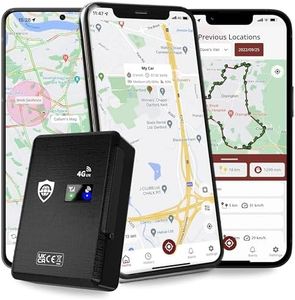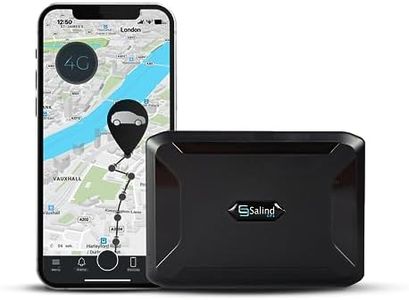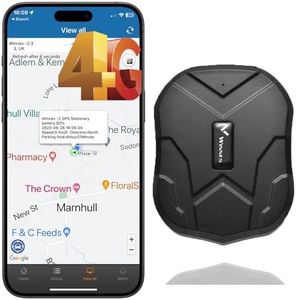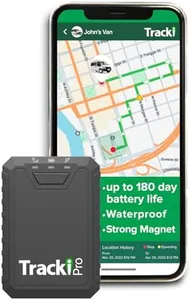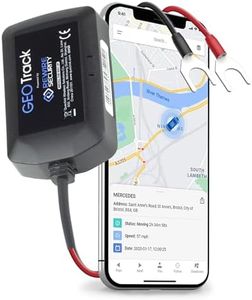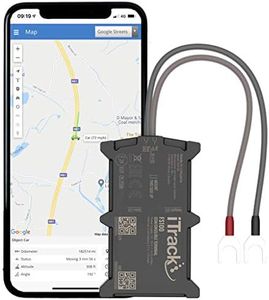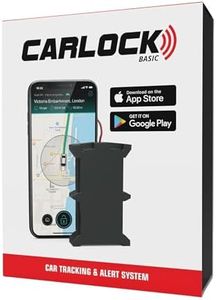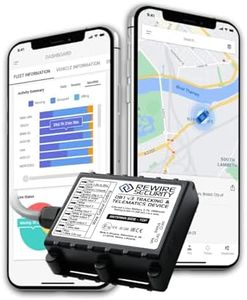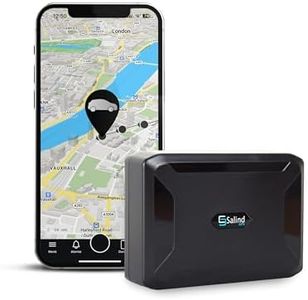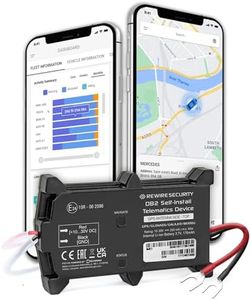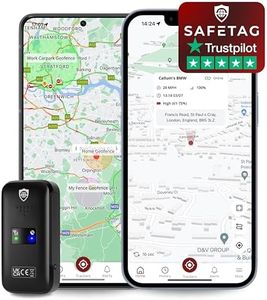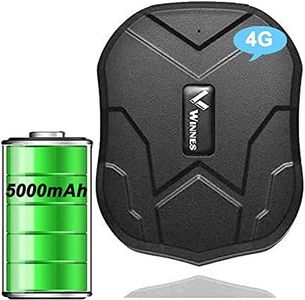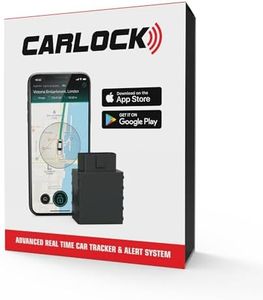We Use CookiesWe use cookies to enhance the security, performance,
functionality and for analytical and promotional activities. By continuing to browse this site you
are agreeing to our privacy policy
10 Best Car Trackers
From leading brands and best sellers available on the web.Buying Guide for the Best Car Trackers
When choosing a car tracker, it's important to consider your specific needs and how the device will be used. Car trackers can provide peace of mind by offering real-time location tracking, theft recovery, and even driving behavior analysis. Understanding the key specifications will help you select a tracker that best fits your requirements, whether it's for personal use, fleet management, or security purposes.Real-Time TrackingReal-time tracking allows you to see the current location of your vehicle at any given moment. This feature is crucial for immediate response in case of theft or if you need to monitor the vehicle's location for other reasons. Trackers with real-time tracking often update every few seconds to a minute. If you need constant updates, look for trackers with shorter update intervals. For less critical needs, longer intervals might suffice.
GeofencingGeofencing is a feature that lets you set virtual boundaries around specific areas. When the vehicle enters or exits these areas, you receive an alert. This is particularly useful for parents monitoring teen drivers or businesses managing a fleet. If you need to ensure a vehicle stays within a certain area, choose a tracker with customizable geofencing options. For general location tracking, this feature might be less critical.
Battery LifeBattery life determines how long the tracker can operate without needing a recharge or replacement. Some trackers are hardwired to the vehicle's power supply, while others rely on rechargeable or replaceable batteries. If you prefer a low-maintenance option, a hardwired tracker might be best. For temporary tracking or if you want to move the tracker between vehicles, consider one with a long-lasting battery.
Installation TypeCar trackers can be plug-and-play, hardwired, or portable. Plug-and-play trackers are easy to install and typically connect to the OBD-II port. Hardwired trackers require professional installation but are more discreet. Portable trackers offer flexibility and can be moved between vehicles. Choose based on your comfort with installation and whether you need the tracker to be hidden or easily transferable.
Data Storage and HistoryData storage and history features allow you to review past locations and routes. This can be useful for analyzing driving patterns or verifying past trips. Some trackers offer cloud storage, while others store data locally. If you need to keep detailed records, look for trackers with extensive storage capabilities. For real-time tracking without the need for historical data, this feature may be less important.
Alerts and NotificationsAlerts and notifications keep you informed about various events, such as speeding, entering/exiting geofences, or low battery. These can be sent via SMS, email, or app notifications. If you need to stay updated on specific activities, choose a tracker with customizable alert settings. For basic tracking needs, fewer alerts might be sufficient.
Subscription FeesMany car trackers require a subscription for data connectivity and access to tracking features. These fees can vary based on the level of service and features offered. Consider how often you'll use the tracker and what features are essential to you. If you need constant connectivity and advanced features, a subscription might be necessary. For occasional use, look for trackers with minimal or no fees.
